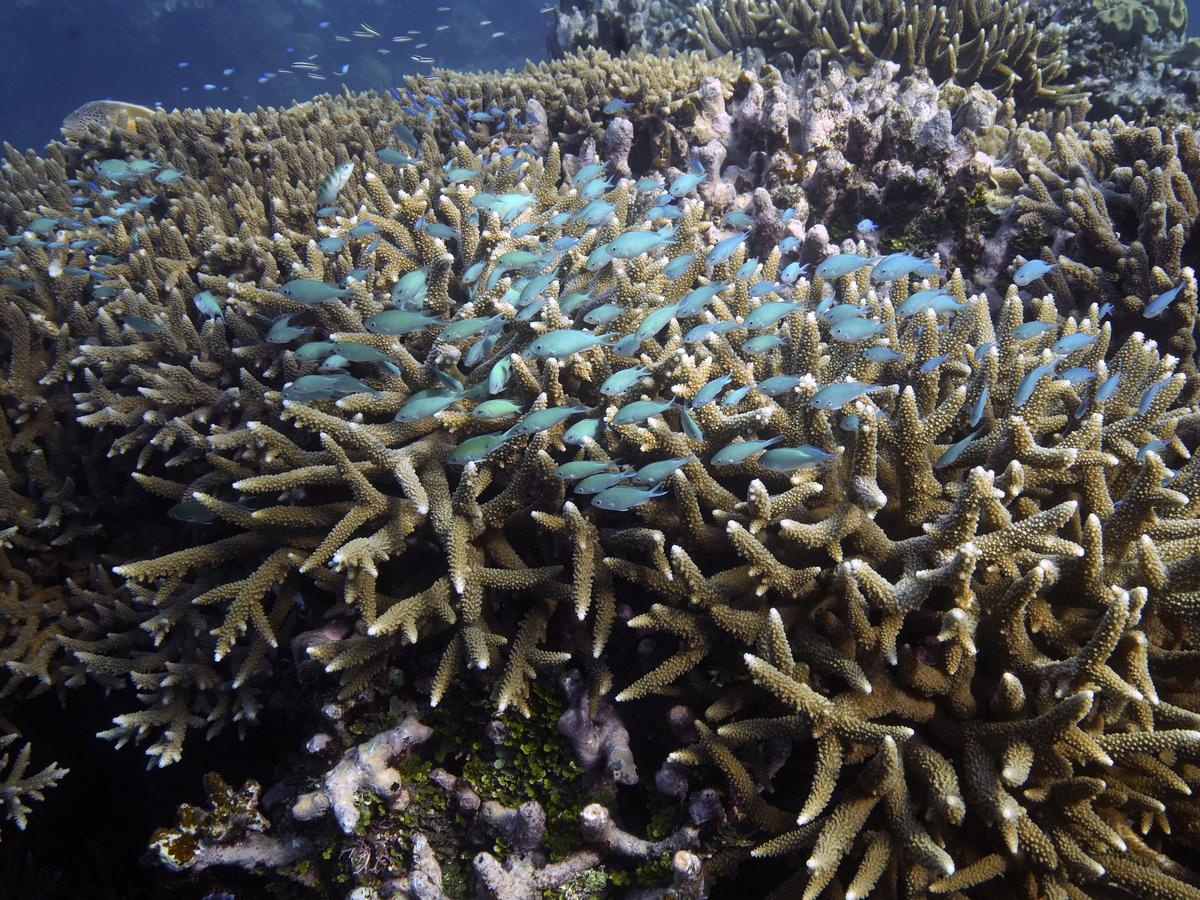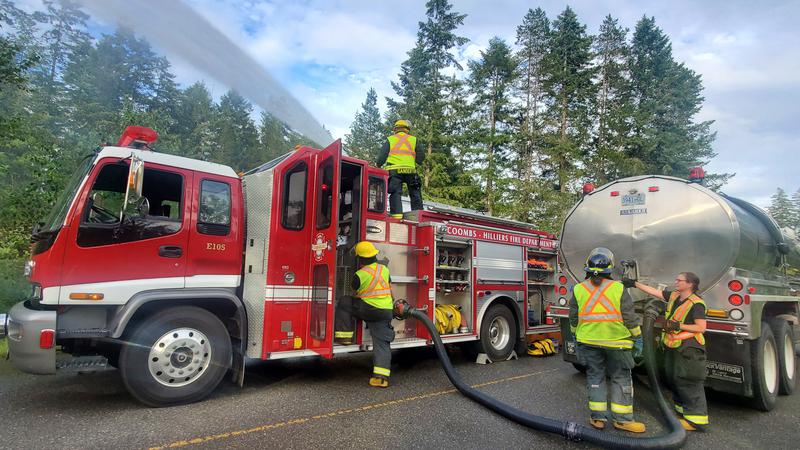A shoal of fish swims above corals on Moore Reef in the Gunggandji Sea country off the coast of Queensland, eastern Australia November 13, 2022. Members of the United Nations meet on Monday in New York to resume efforts to forge a treaty to safeguard global marine biodiversity.
Sam McNeil/AP
hide caption
toggle caption
Sam McNeil/AP

A shoal of fish swims above corals on Moore Reef in the Gunggandji Sea country off the coast of Queensland, eastern Australia November 13, 2022. Members of the United Nations meet on Monday in New York to resume efforts to forge a treaty to safeguard global marine biodiversity.
Sam McNeil/AP
Members of the United Nations meet in New York on Monday to resume their efforts to forge a long-awaited and elusive treaty to safeguard the world’s marine biodiversity.
Almost two-thirds of the ocean lies outside national borders, on the high seas, where fragmented and unevenly enforced rules seek to minimize human impacts.
The aim of the UN meetings, which run until March 3, is to produce a unified agreement for the conservation and sustainable use of these vast marine ecosystems. The talks, officially called the Intergovernmental Conference on Marine Biodiversity of Areas Beyond National Jurisdiction, resume negotiations suspended last fall without agreement on a final treaty.
“The ocean is our planet’s life support system,” said Boris Worm, a marine biologist at Dalhousie University in Canada. “For a very long time, we didn’t feel like we had a big impact on the high seas. But that notion has changed with the expansion of deep sea fishing, mining, plastic pollution, climate change,” and other human disturbances, he said.

The UN talks will focus on key questions, including: How should the boundaries of marine protected areas be drawn, and by whom? How should institutions assess the environmental impacts of business activities, such as shipping and mining? And who has the power to enforce the rules?
“It is our greatest global common good,” said Nichola Clark, an oceans expert who follows the negotiations for the nonpartisan Pew Research Center in Washington, DC. “We are optimistic that this next round of negotiations will be the one that will achieve a treaty at the finish line.”
The objective of the talks is not to designate marine protected areas, but to establish a mechanism to do so. “The goal is to set up a new body that would accept submissions for specific marine protected areas,” Clark said.
Marine biologist Simon Ingram from the University of Plymouth in England says there is an urgent need for a deal. “It’s a really pressing time for that – especially when you have things like deep-sea mining that could be a real threat to biodiversity before we’ve even been able to study and understand what’s living at the bottom of the ocean. ‘ocean,” Ingram said.

Experts say a global ocean treaty is needed to enforce the UN Biodiversity Conference’s recent commitment to protect 30% of the world’s oceans, as well as its land, for conservation.
“We need a legally binding framework that can allow countries to work together to achieve the goals they have agreed to,” said Jessica Battle, ocean governance expert at the World Wide Fund for Nature.
US Assistant Secretary of State for Oceans and International Environmental and Scientific Affairs Monica Medina said the treaty was a priority for the country. “This agreement aims to create, for the first time, a coordinated approach to establishing marine protected areas on the high seas,” she said. “Time to finish the job.”
Officials, environmentalists and representatives of global industries that rely on the sea are also following the negotiations closely.

Gemma Nelson, a lawyer from Samoa who is currently an Ocean Voices Fellow at the University of Edinburgh, said small island nations in the Pacific and Caribbean were “particularly vulnerable to global ocean issues”, such as pollution and climate change. climatic, which they generally did not do. cause and do not have the resources to remedy it easily.
“Having recognition of the validity of the traditional knowledge of local people and communities” is also key to protecting both ecosystems and the ways of life of indigenous groups, she said.
With nearly half of the planet’s surface covered by the high seas, the talks are of great importance, said Gladys Martínez de Lemos, executive director of the nonprofit Inter-American Association for the Defense of Environment, which focuses on environmental issues in Latin America.
“The treaty must be strong and ambitious, having the power to establish high and fully protected areas on the high seas,” she said. “Half the world is at stake these weeks at the United Nations.”
npr
Don’t miss interesting posts on Famousbio










